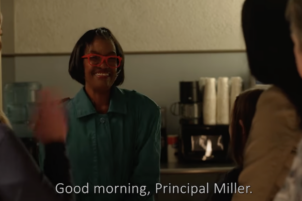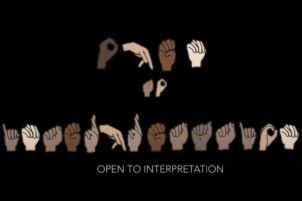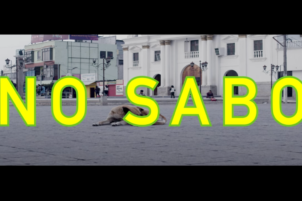Los Angeles, Sept 21 – The process of making a creative project requires many steps from writing and editing drafts, to finding the right creative partner and securing funding. To help guide them in this layered and arduous process, RespectAbility’s Entertainment Lab provides disabled creatives with mentorship, industry insight, and networking opportunities in all facets of the entertainment industry. Recently, Lab Fellows learned the ropes of the vital yet intimidating step: pitching.
In the session, “The Art of Pitching,” Fanshen Cox stressed the importance of sharing one’s own journey in a pitch. As a storyteller, Cox advised participants to think about experiences that they want to share and tell a story. “When you’re going into a pitch, you want to do everything to make sure you feel confident.”

Fanshen Cox
She emphasized how each person can choose how to express themselves, their creative pursuits, and their identities as a narrative that can help create or sell a unique connection to the project. A pitch must draw in potential collaborators, intrigue prospective investors, and provide a clear vision of a creative professional, company, or project to everyone it reaches. Throughout the session, Cox encouraged participants to find unique talking points or share brief stories that could foster a personal connection.
In addition to serving as an advisor for the Lab, Cox is a playwright, actor, producer, and educator. Cox also co-authored the inclusion rider, a provision included in an actor’s contract for a particular project that requires casting, production, and studio staff to reflect diversity in their hiring process. “The industry is just now understanding the importance of representation,” said Cox.

Manon de Reeper
After learning how to create a pitch for themselves and/or a project, Lab Fellows learned how to craft a pitch deck from guest speaker Manon de Reeper. While a pitch can be focused on the project, its creator, or both, the pitch deck is meant to provide insight into a particular project. A pitch deck can provide a snapshot of the project and its vision. “It is the first time you are going to be thinking about what this project is going to look like,” de Reeper advised.
The pitch deck can be used for films, television, graphic novels, books, or any other creative project. “It is a visual guide to your script or project,” shared de Reeper.
When emphasizing the importance of the pitch deck, de Reeper advised participants that it can be difficult for writers to put a visual media piece together, but the pitch deck helps paint the larger picture of a project when presenting it a studio or producer. De Reeper, a screenwriter, author, and the Vice President of Development at Women of Color Unite, gave a full rundown and tutorial to participants on how to create their own.
A strong pitch deck, according to de Reeper, can be almost as important as having a completed script to present, because films can be greenlit with only a pitch deck and no script. While a pitch deck is meant to be visual and informative, de Reeper encouraged Lab Fellows to consider the question of “What does the project feel like?” Crafting a pitch deck with a project’s mood or tone in mind can provide readers with a greater sense of the vision and direction for the characters and story.
Both the pitch and the pitch deck are teasers for what is to come. While it can be intimidating to talk about oneself or one’s work to producers, studios, or potential collaborators, entertainment professionals need to learn these necessary skills to share what they care about most: their art.
RespectAbility’s fourth annual Lab for Entertainment Professionals with Disabilities brings authentic and diverse portrayals of people with disabilities to the screen by creating a pipeline of diverse professionals with disabilities behind the camera. Participants include people with physical, cognitive, sensory, mental health, and other disabilities. Lab alumni currently work for a variety of studio partners including DreamWorks Animation, Netflix, Nickelodeon, Paramount Pictures, Sony Pictures Entertainment, and The Walt Disney Company, as well as in a variety of writers’ rooms. Others have had films featured at festivals such as Cannes Short Film Festival, SXSW, Slamdance, and Tribeca, and participated in additional career track programs including with Film Independent and Sundance Institute.







